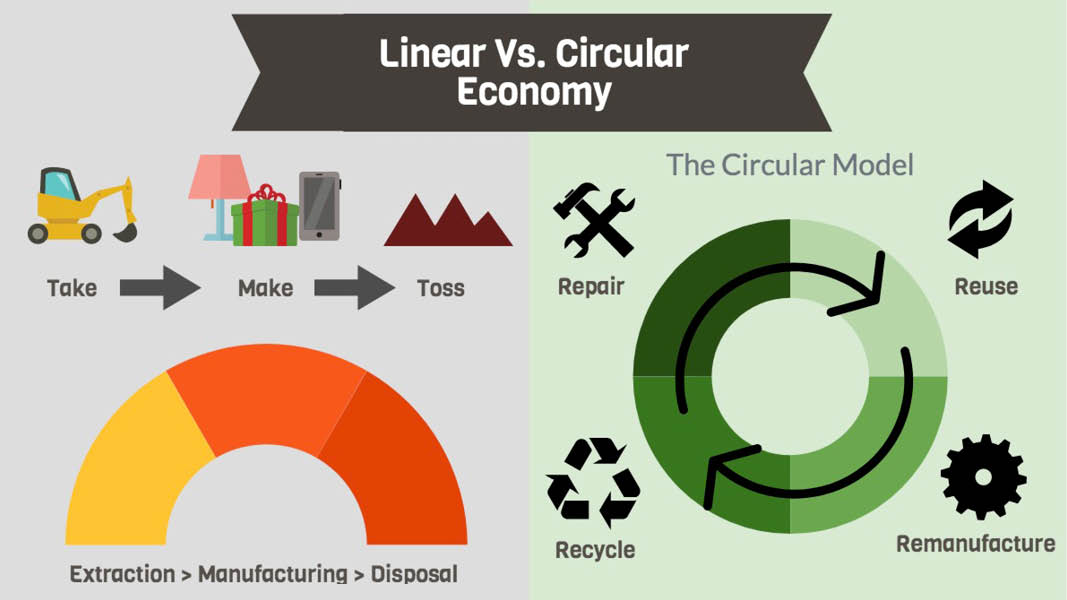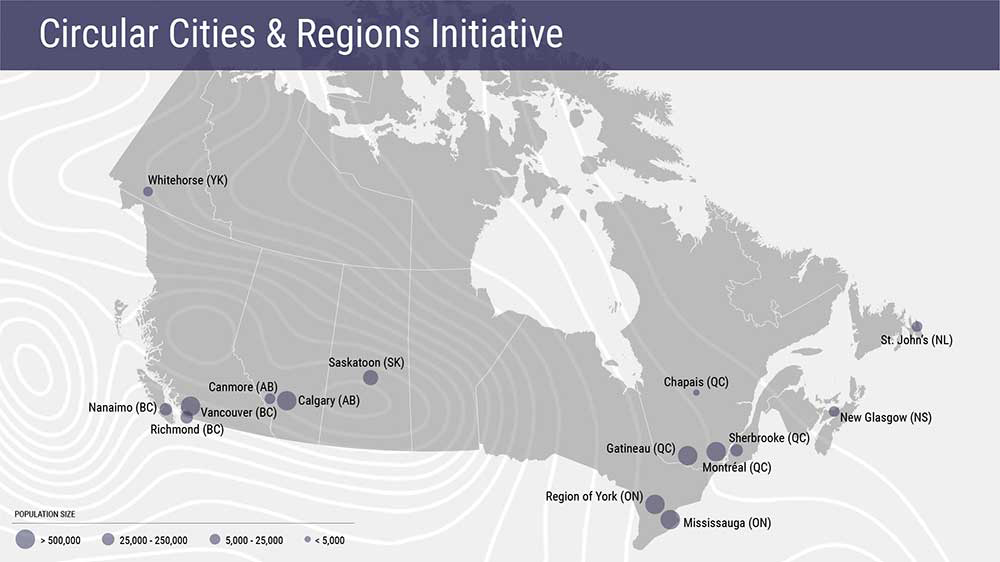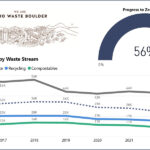Top: Infographic by Recycling Council of British Columbia Circular Economy
Fifteen local governments have been selected to participate in the Canadian Circular Cities & Regions Initiative’s (CCRI) Peer-to-Peer (P2P) Network, designed to promote job creation and sustainable practices in the post-pandemic economy. The CCRI is a one-year national pilot developed by the National Zero Waste Council, the Federation of Canadian Municipalities’ Green Municipal Fund, the Recycling Council of Alberta and RECYC-QUÉBEC, to provide local governments in Canada with a venue for community members to learn and share best practices for implementing circular economy strategies and policies, and acquire the knowledge and tools needed to accelerate solutions. A series of national webinars, available to anyone interested in participating, is being hosted throughout the year to profile leading examples from within Canada and abroad. A webinar on July 15th, Circularity At All Levels, features speakers from several countries who will discuss the benefits of place-based innovation at the city and regional level.
Selected Canadian cities include Whitehorse (Yukon Territories); Region of York and Mississauga (Ontario); Nanaimo, Richmond and Vancouver (British Columbia); Montreal, Chapais, Gatineau and Sherbrooke (Quebec); St. John’s (Newfoundland and Labrador); Calgary and Canmore (Alberta); New Glasgow (Nova Scotia); and Saskatoon (Saskatchewan). “Local governments are planning their post-pandemic economic recovery, making now the perfect time to adopt innovative solutions that create jobs and benefit the environment,” notes Jack Froese, Chair of the National Zero Waste Council. “With focused goals of developing resilient and livable communities, these local governments are perfectly situated to be key enablers of the circular economy transition.”
Prior to launch of the national initiative, the Recycling Council of Alberta (RCA) created the Circular Cities Project to help cities in Alberta develop roadmaps for a sustainable circular economy. To date, five cities have roadmaps — Banff, Calgary, Edmonton, Lethbridge and Strathcona. “Cities are in a unique position to advance the Circular Economy,” says RCA’s Executive Director Christina Seidel, who helped start CCRI. “They represent the majority of the population, being hubs of economic activity and primary sources of environmental impacts. At the same time, cities are much more nimble than higher level governments, allowing them to be proactive and bring a high level of innovation to the challenge of evolving our economy to be more circular.”














